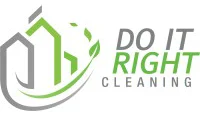Maintaining a clean and safe workspace is crucial for any business, regardless of its size or industry. While we often focus on the tools and techniques used to achieve this goal, one aspect that is often overlooked is the proper storage and handling of cleaning chemicals.
As businesses strive to maintain high standards of cleanliness amidst the ongoing COVID-19 pandemic, it’s essential to understand the importance of storing and handling these chemicals correctly.
Not only can mishandling lead to ineffective results, but it can also pose serious health risks to employees and patrons if not done with care. In this blog post, we will delve into what you need to know about properly storing and handling cleaning chemicals in your workplace to ensure a safe and hygienic environment for all.
So, let’s roll up our sleeves and dive into this important topic together!
The Importance of Proper Storage and Handling of Cleaning Chemicals
Every business relies on a variety of cleaning chemicals to ensure a spotless and germ-free environment. However, these substances, despite their necessity, can be hazardous if not stored and handled appropriately.
The proper storage and handling of cleaning chemicals is not merely about keeping your workspace organized; it’s a fundamental safety measure that can prevent accidents like spills, leaks, or chemical reactions that can have severe consequences.
In addition, correctly stored and handled cleaning chemicals maintain their effectiveness, ensuring the highest level of cleanliness. Therefore, understanding the correct procedures for storing and handling these substances is of paramount importance in fostering a safe, healthy, and productive workspace environment.
Types of Cleaning Chemicals Commonly Used in Households and Their Potential Hazards
Several cleaning chemicals commonly found in households include bleach, ammonia, drain cleaners, and laundry detergent, each carrying their unique potential hazards.
- Bleach: A potent disinfectant and stain remover, bleach is a common household cleaning agent. However, it can cause harm if improperly handled. Inhaling bleach fumes can lead to respiratory problems, and direct contact can cause skin and eye irritation.
- Ammonia: Often found in glass and window cleaners, ammonia is effective in cutting grease and cleaning surfaces. Nonetheless, like bleach, ammonia fumes can irritate the respiratory system, and direct contact can harm the skin and eyes.
- Drain Cleaners: These are powerful substances used to unclog drains. They can be extremely corrosive and can cause severe skin burns upon contact. If accidentally ingested, they can cause serious harm to the digestive tract.
- Laundry Detergent: While necessary for cleaning clothes, laundry detergents, especially pods, can be harmful if swallowed or if they come in contact with the eyes.
Understanding these potential hazards is the first step toward the safe handling and storage of these commonly used household cleaning chemicals.
Tips for Storing Cleaning Chemicals Safely
When it comes to storing cleaning chemicals safely, it’s more than just placing them on a shelf. Proper storage entails specific methods that ensure the chemicals’ stability and the safety of those around them. Let’s delve into some crucial tips for safe storage of cleaning chemicals.
- Use Appropriate Containers: Always store cleaning chemicals in their original containers. These containers are designed specifically for these substances, and they prevent any chemical reactions that could take place if transferred to a different container. If the original container is damaged, use a container that is made of a compatible material and is chemical resistant.
- Proper Labeling: Each container of cleaning chemicals should carry a clear, legible label. This label should contain vital information like the name of the chemical, its potential hazards, necessary precautions, and first aid instructions. Never store unmarked chemicals as it increases the risk of accidental misuse.
- Separate Incompatible Substances: Some cleaning chemicals can react when they come into contact with each other. Always store incompatible substances separately to prevent any potential reactions. For instance, bleach and ammonia, when mixed, can produce toxic fumes.
- Store in a Cool, Dry Place: Most cleaning chemicals should be stored in a cool, dry place. Extreme temperatures or moisture can disrupt the stability of the chemicals, making them less effective or even hazardous.
- Keep Out of Reach: Cleaning chemicals should always be stored out of the reach of children and pets. If possible, keep them in a locked cabinet for added safety.
By following these crucial tips, you can ensure the safe storage of cleaning chemicals, significantly reducing potential hazards in your household or workplace.
Importance of Reading Labels and Following Instructions for Proper Usage
Reading labels and following instructions provided on cleaning chemicals is highly significant and should never be taken lightly. Each cleaning chemical, regardless of its function, comes with specific usage and safety instructions that are meant to ensure effective cleaning and mitigate any risks related to improper usage.
These instructions include information about the ideal quantity to use, the appropriate method of application, the required personal protective equipment (PPE), and the necessary steps to take in case of accidental exposure or ingestion. Not adhering to these instructions can lead to insufficient cleanliness or, worse, accidental poisonings, chemical burns, or other serious health implications.
Additionally, the labels also provide details about the disposal of the chemical, an often overlooked yet critical aspect of handling cleaning chemicals. Therefore, it’s not only crucial to read the labels and follow instructions for each cleaning chemical, but it’s also a matter of safety and effectiveness.
Best Practices for Handling and Using Cleaning Chemicals
Implementing best practices for handling and using cleaning chemicals is vital for maintaining safety and efficacy. Below are a few key practices to consider:
- Wear Protective Gear: Always wear proper Personal Protective Equipment (PPE) like gloves, goggles, and long sleeves when handling cleaning chemicals. This helps to prevent direct contact with the skin, eyes, and other sensitive areas of your body, reducing the risk of burns or irritations.
- Avoid Mixing Different Products: Mixing different cleaning chemicals can lead to dangerous reactions, producing harmful or even toxic gasses. For instance, combining bleach and ammonia results in chloramine vapors, which can be harmful if inhaled. Always stick to the product’s instructions and avoid unnecessary combinations.
- Ventilate Your Space: When using cleaning chemicals, ensure proper ventilation in your workspace. It helps disperse chemical fumes, reducing the risk of respiratory irritation or discomfort.
- Use the Right Amount: Using more of a cleaning chemical does not necessarily mean better cleaning. Overusing can lead to residue build-up and potential exposure to harmful concentrations. Always follow the manufacturer’s dosage instructions.
- Store Safely After Use: After using a cleaning product, ensure it’s properly sealed before storing it. It helps avoid accidental spills or leaks and prevents children or pets from accessing the chemicals.
- Dispose of Chemicals Properly: Ensure you follow the correct disposal procedures for cleaning chemicals. Some chemicals can’t be disposed of down the drain or in regular trash due to their hazardous nature. Check labels for disposal instructions or consult local waste disposal facilities.
By adhering to these best practices, you can ensure that you’re using cleaning chemicals in a manner that maximizes their effectiveness while minimizing potential risks.
In conclusion
The storage, handling, and usage of cleaning chemicals play a critical role in maintaining a clean, safe, and healthy environment. Despite their widespread use, these substances pose potential hazards that can lead to serious health risks if not properly managed.
By understanding these risks, implementing safe storage practices, reading labels following instructions, and adhering to best handling practices, we can significantly mitigate these risks.
Remember, safety should always come first – the goal is not just to clean, but to ensure that the process of cleaning itself is safe and efficient for everyone involved.
About Us
Are you looking for a reliable and reputable cleaning company in Christiansburg to ensure your property has a hygienic and clean environment without compromising on safety? Look no further than Do it Right Cleaning.
We have been in the industry for over 10 years and are dedicated to providing the best cleaning services to our clients all across the I-81 corridor from Wytheville to Roanoke.
Our services include residential cleaning, commercial cleaning, industrial cleaning, and janitorial services. Remember, when it comes to safety and cleanliness, we don’t just clean it, we do it right!
You can fill out our contact form to know more. Request a quote here to get started!

